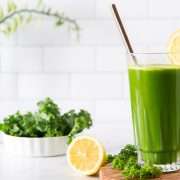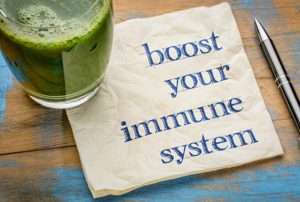Immune System Booster: Superfoods that boost immunity
Immune System Booster: Superfoods that boost immunity
Your immune system protects your body from diseases. When your immune system is compromised, you are more susceptible to colds and flu, digestive issues, fatigue, and frequent infections. As a result, experts advise people to take steps to strengthen their immune systems throughout the COVID-19 pandemic and beyond. Proper nutrition is an immune booster for adults and children. While no single food provides all of the nutrients your body requires, eating a variety of immune system booster foods from all food groups helps ensure you get all of the nutritional elements you require to stay healthy.
Complex network
The immune system is a complex network of cells, organs, and proteins that work together to protect your body from infection. It is influenced by an ideal balance of various factors, one of the most important of which is diet. People frequently seek out certain foods. When someone has the flu, they may include chicken soup, citrus fruits, and tea with ginger and lemon. Every day, you are exposed to a wide range of potentially harmful microbes. Experts believe that a strong immune system is your best line of defence. A well-balanced diet rich in vitamins and minerals, combined with healthy lifestyle factors like adequate sleep and exercise, helps to boost your innate and adaptive immunity.
SUPERFOODS TO HELP YOUR IMMUNE SYSTEM
A strong immune system cannot be built in a day or two. Your best line of immune defense is to change your food habits and incorporate nutritious foods that work towards keeping your immune system healthy.
Super Foods to boost immune system
1. Turmeric
Turmeric is a popular spice that is used in a variety of curry dishes. But turmeric is more than just a bright yellow, bitter spice. This food item is most likely already in your pantry. It is not only a great flavouring agent, but it also has anti-microbial and anti-inflammatory properties. Turmeric, for example, has been shown to contain immunomodulatory agents. Curcumin, the active compound responsible for turmeric’s bright orange-yellow colour, has the ability to modulate the activation of T cells, B cells, and dendritic cells, all of which are important components of your immune system. Turmeric boosts antibody responses, which protects against arthritis, allergies, heart disease, and Alzheimer’s disease. Turmeric is an excellent immune system booster! It has long been used to treat rheumatoid arthritis and osteoarthritis. The high levels of curcumin in turmeric give it its distinct colour. A number of research studies have shown that curcumin can significantly reduce muscle damage caused by sports or exercise. Turmeric is a yellow spice widely used in cooking. It’s also in some alternative medicines. Turmeric consumption may improve a person’s immune response. This is because of the properties of curcumin, a compound found in turmeric. Curcumin has anti-inflammatory and antioxidant properties. Turmeric helps our immune system by containing the dynamic fixing curcumin, which has calming properties. Jaundice aids in reducing aggravation and disruption on aviation routes. Working on respiratory health. Curcumin in turmeric reduces the number of pro-inflammatory particles that cause infection-related harm. It provides the body with antiviral properties.
2. Amla
Amla, also known as Indian gooseberry, is a fruit high in Vitamin C, an essential micronutrient that supports both the innate and adaptive immune systems (5). Amla is one of the best sources of Vitamin C available. A 100-gram serving of the superfruit has the same amount of vitamin C as 20 oranges (6). The fruit may also aid in digestion and cell regeneration. It also contains potent antioxidants, making it an excellent addition to your diet. Gooseberries contain L-ascorbic acid. As a result, including gooseberry in the diet will strengthen the immune system. Gooseberry jam, chutney, and juice can all be incorporated into the diet.
3. Ashwagandha
The other proven health benefits range from improving strength and stamina to boosting immunity. It’s also rich in phytochemicals that can fight external toxins and viruses. Take it as a supplement (500-800mg) or as a churna/powder mixed with milk,” suggests Anupama Menon, Nutritionist and Food Coach. The name Ashwagandha is Sanskrit for “smell of the horse,” which refers to both its unique smell and ability to increase strength. Other proven health benefits include increased strength and stamina as well as immunity boost. It’s also high in phytochemicals, which can help you fight off external toxins and viruses. “Take it as a supplement (500-800mg) or as a churna/powder mixed with milk,” suggests Nutritionist and Food Coach Anupama Menon. Ashwagandha is Sanskrit for “horse smell,” referring to both its distinct odour and its ability to increase strength.
4. Goji Berries
The goji berry is the darling of the superfood world, with benefits ranging from powerful anti-aging properties to glucose regulation and immune system support. The berry is a great natural source of micronutrients like fibre, protein, and vitamins like riboflavin and thiamine. It also contains minerals like copper, selenium, and magnesium. All of these macronutrients improve immune function by increasing immune cell levels in the body. Other advantages include improved eye, liver, and kidney health. Sun-dried goji berries should undoubtedly be included in your daily diet.
5. Yoghurt
Probiotics are live, active bacteria found in our gastrointestinal tract and intestinal tract that can be found in curd and yoghurt. These beneficial bacterias help the digestive tract’s natural defence against pathogens that can cause illness. It is recommended that you consume plain yoghurt rather than sweetened or flavoured yoghurt. Instead, try sweetening the curd with some fruits and honey. Furthermore, they are high in vitamin D, which aids in the regulation of the immune system. What we’re discussing here is yoghurt with live and active cultures, such as Greek yoghurt. To be sure, always check the label.
These cultures boost your immune system, allowing you to fight off dangerous diseases. When shopping for yoghurt, opt for plain varieties rather than those with added sugar or that are pre-flavored. If you want to add some sweetness to plain yoghurt, use healthy fruits or honey instead. Natural yoghurt contains vitamin D, which is necessary for immune system regulation. Not only that, but vitamin D is essential for boosting your immune system and protecting you from disease. Yogurt is extremely beneficial in fortifying the immune system. Yogurt contains vitamin D, which can help with resistance.
In any case, remember that adding home-frozen yoghurt (Curd) to your diet is far superior to adding store-bought yoghurt (Curd).
More foods to boost immune system when sick
6. Neem
Neem has been a pioneer in boosting the immune system while internally cooling the body.” Most importantly, it functions as an antiviral agent. It prevents virus reproduction, reducing the severity of an infection. Neem has blood-purifying properties as well. It aids in the removal of toxins and impurities from the blood, resulting in a stronger immune system.
7. Ginger
It is high in antioxidants and has anti-inflammatory properties. It is an excellent herb for reducing inflammation in the gut. Ginger is my go-to remedy for a cold, sinus infection, tummy ache, or sore throat. A tall mug of warm water with crushed ginger, tulsi leaves, organic honey, and lemon could be extremely beneficial to the mind, body, and soul.
Immune food Vitamin C and immunity
Vitamin C, also known as ascorbic acid, is a water-soluble vitamin well known for its role in immune system support. Because your body cannot produce vitamin C, it must be obtained from the foods you consume on a daily basis. Share this on Twitter According to research, vitamin C is required for the growth and repair of tissue throughout the body. Vitamin C aids in the healing of wounds as well as the repair and maintenance of healthy bones, teeth, skin, and cartilage — a type of firm tissue that covers the bones. Vitamin C, as an antioxidant, combats free radicals in the body, which may help prevent or delay certain cancers and heart disease, as well as promote healthy ageing. Food-based vitamin C appears to reduce the risk of cartilage loss in people with osteoarthritis.
Though it will not prevent you from getting a cold, there is some evidence that high doses of vitamin C may shorten the duration of cold symptoms by one to one and a half days for some people. Other studies, however, did not produce the same results, and the risk of side effects is higher with high doses of vitamin C supplements, so consult your doctor or registered dietitian nutritionist before taking. Vitamin C sources abound and go far beyond the ever-popular orange or orange juice. This essential vitamin is found in a variety of fruits and vegetables. Citrus fruits, tomatoes, potatoes, strawberries, green and red bell peppers, broccoli, Brussels sprouts, and kiwifruit are all good sources of vitamin C.
You can eat these foods raw or cooked, but keep in mind that fruits and vegetables lose vitamin C when heated or stored for an extended period of time. Eat them as soon as possible after shopping to get the most nutrients, and consider steaming or microwaving vegetables for short periods of time to limit nutrient loss. Vegetarians may be particularly interested to learn that vitamin C aids the body’s absorption of non-heme iron, which comes from plant foods such as beans, spinach, and quinoa. Combine vitamin C-rich foods with iron-rich plant foods in the same meal to reap this benefit. Combine black beans and salsa, for example, or make a flavorful spinach salad with strawberries and mandarin oranges.
You should definitely check out Plix’s solution for boosting immunity which is Immune Boost – Daily fizzy for immune support It contains 1000mg Amla per tablet to give you your daily dose of improved immunity and energy. It is simple to digest, gentle on the stomach, and causes no digestive problems.
FAQs
1. What are some sources of Vitamin C?
Citrus fruits, tomatoes, potatoes, strawberries, green and red bell peppers, broccoli, Brussels sprouts, and kiwifruit are some sources of Vitamin C
2. Why should I consume Ashwagandha?
Ashwagandha is an ancient medicinal herb that is extremely beneficial for mental and physical health. It increases strength and reduces stress thereby improving mental wellness. It also has more benefits like it helps in regulating cholesterol levels and blood sugar levels and also improves immunity.
3. What are some Vitamin C supplement brands I can check out?
You can check out Plix Life’s Immune Boost which contains 1000 mg of Vitamin C per tablet. It is Vegan, 100% gluten-free and non-GMO
4. What are the benefits of Immune Boost?
It supports natural detoxification and helps maintain pH balance. It encourages healthy digestion, increased WBC (White Blood Cell) production and improves body’s immunity.
5. How much Vitamin C per day should I take?
The recommended dosage of Vitamin C per day is 65 to 90 milligrams (mg), and the upper limit is 2,000 mg a day. For maximum benefits, you can consume up to 1000mg Amla from Vitamin C daily.















